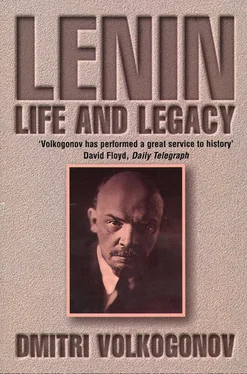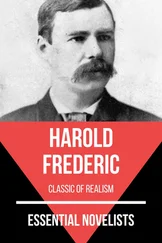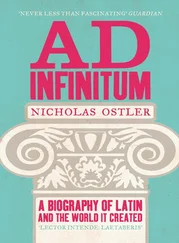Apollinaria was a teacher, like Nadezhda, and a Marxist, and Lenin apparently proposed to her, but was rejected in favour of K.M. Takhtarev, the editor of the journal Rabochaya mysl ’. 73 Also like Nadezhda, she was exiled to Siberia in 1896. She and Lenin maintained a correspondence, notably when Lenin was in Munich after 1900 and she was in London, in which he reminded her of their ‘old friendship’, 74 and they met several times in London in 1902 and 1903, where he was then living and working on his Party newspaper, Iskra . There is some evidence that, before Lenin became acquainted with Inessa Armand, he had an affair with a Frenchwoman in Paris. When Viktor Tikhomirnov, a researcher from the Marx-Engels-Lenin Institute, met the ex-Bolshevik émigré G.A. Alexinsky in Paris in 1935 to discuss some Lenin documents, Alexinsky showed him letters of an extremely personal nature that Lenin had written to a woman writer, and which the recipient preferred not to send to Moscow as long as Krupskaya was still alive. She was then living on a Soviet pension which she had been receiving via Dzerzhinsky and later Menzhinsky, successive heads of the Soviet secret police. 75 The letters remained in Paris and their whereabouts are now unknown.
Exile to remote parts of Siberia was the usual punishment for a wide range of activities regarded as seditious by the government, whether taking part in a Marxist study circle or fomenting a strike and joining a demonstration. After a series of interrogations in prison in the capital, therefore, Lenin was exiled for three years to Siberia under police surveillance in February 1897. He soon began to correspond with Krupskaya. At the same time, his mother launched a campaign of requests to the police on her son’s behalf, starting with an application to allow him to travel at his own expense, because of his poor state of health, followed by one asking them to delay his departure from the capital, then for him to stay in Moscow for a week as she herself was ill, then to extend his stay there, and so on. She also wrote to the governor-general of Eastern Siberia asking him to ‘allocate Krasnoyarsk or one of the southern towns of Yenisei province’ as her son’s place of exile, again because of his poor state of health. Lenin reinforced her efforts on his own behalf, advancing the same reason. 76 All of their requests, except one, were conceded by the ‘blood-stained tsarist regime’. 77 Lenin would not be so lenient when he came to power, even where former social democrat comrades were involved. In a note to Stalin dated 17 July 1922, he proposed that a number of them, including Potresov, be expelled from the country forthwith: ‘… several hundred of such gentlemen should be put across the border without mercy … Get the lot of them out of Russia.’ 78 He believed in general that ‘repressions against the Mensheviks should be stepped up and our courts should be told to do this’. 79
How his attitudes had changed! Exile in Shushenskoe had been little more than an enforced three-year vacation. He had thought it normal to request a nicer place to live ‘in view of my poor health’, nobody made him do any work, he was under no restraints. Many other exiles, Julius Martov, for instance, thought it beneath their dignity as revolutionaries to beg for favours or a nicer place. Lenin, however, for all his ‘poor state of health’, wrote home to the family that ‘apart from hunting and swimming, most of my time is spent on long walks’. 80 He was also sleeping ‘extraordinarily long’, and although it was ‘impossible to find [domestic] help, and unthinkable in the summer’, he was ‘satisfied with the apartment and the food’, had ‘filled out and got a suntan’, and was living ‘as before, peacefully and unrebellious’. He compared his present abode favourably with Spitz, the Swiss resort where the family was then on holiday. 81
The life of a political exile under the tsar was immeasurably easier than that installed by the Soviet regime, whose prisoners first had to build their own camps and then fill them. The tsar’s exiles – we are not speaking of prisoners, but of those expelled from European Russia and made to remain in a designated place for a period – could pay each other visits in different locations, arrange meetings, write books and political programmes, entertain their relations and even start families. In July 1897, for example, Lenin received an invitation to attend the wedding of his friends V.V. Starkov and A.M. Rozenberg, the sister of the Marxist organizer G.M. Krzhizhanovsky. Perhaps it was such an event that prompted the correspondence between Lenin and Nadezhda Krupskaya, who by then was herself in exile, for the same offence, in Ufa in the southern Urals. In January 1898, Lenin applied to the police department to allow his ‘fiancée’, Krupskaya, to continue her exile in Shushenskoe. Krupskaya recalled that she also requested transfer to Shushenskoe, ‘and for that reason I said I was his “fiancée”’. 82 While a large number of Nadezhda’s letters to Vladimir seem to have been preserved, his letters to her appear not to have been.
At the beginning of May 1898, after a long journey by rail, boat and horse-drawn transport, Krupskaya arrived in Shushenskoe with her mother, who would accompany the couple wherever fate despatched them. According to Lenin, his future mother-in-law had barely set eyes on him before she exclaimed, ‘They really wanted you well out of the way, didn’t they?’ 83 He wrote to his mother that Nadezhda had ‘imposed a tragi-comic condition: if we don’t get married right away (!), she’s off back to Ufa. I’m not at all disposed to go along with this, so we’ve already started having “rows” (mostly about applying for the papers without which we can’t get married).’ 84
There were a number of formalities to be observed. Lenin applied to the Minusinsk district prefect and then to higher provincial authorities for the necessary papers, but old Russia had more than its fair share of bureaucracy, and nearly two months passed before the papers arrived. Nadezhda’s mother insisted they have the full religious ceremony, and despite the fact that Lenin was by now twenty-eight and Nadezhda a year older, and that both of them were long-standing atheists, they felt compelled to submit. Lenin invited a few exile-friends to the wedding, and on 10 July 1898 the modest ceremony took place, witnessed by two local peasants called Yermolaev and Zhuravlev. Congratulatory greetings arrived from Apollinaria, who was in exile near Krasnoyarsk. Also, on the very day of the wedding, the couple received a letter from Y. M. Lyakhovsky with the news that Fedoseev had committed suicide in Verkholensk, and had wanted Lenin to know that he had done so not with disappointment, but ‘wholehearted faith in life’. 85 Another letter arrived soon afterwards with the news that Fedoseev’s fiancée had also killed herself.
The Ulyanovs’ marriage, a union of two mature people, was itself mature, practical, quiet and devoid of either passionate love or emotional upheavals. Unlike her mother, Nadezhda was an obliging, even-tempered and balanced woman. Exceptionally intelligent and hard-working, she at once assumed her rôle as assistant to the man who was working hard, through his writing and contacts, to establish himself as a dominant force in the Russian Marxist revolutionary movement while still in Siberian exile. After the wedding, the couple moved from the house of a certain A.D. Zyryanov to that of a peasant woman called A.P. Petrova. Lenin’s work on his first major book, The Development of Capitalism in Russia , began to make more rapid progress. Between jaunts on the river, hunting and walking in the forest, he consumed a vast amount of economic, philosophical and historical literature, which was sent to order by his mother, Potresov and Pavel Axelrod, a close associate of Plekhanov’s. The first book he read in Shushenskoe was The World Market and the Agricultural Crisis by Alexander Helphand, who wrote under the alias of Parvus, and who would emerge in a far more significant rôle in Lenin’s life in later years.
Читать дальше












